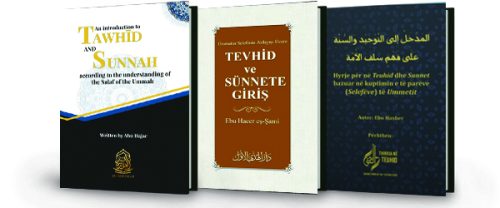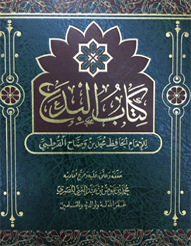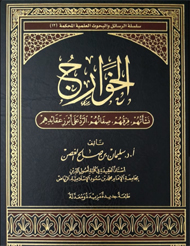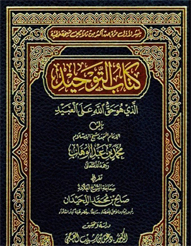
![]() English (download)
English (download)
![]() Turkish (download)
Turkish (download)
![]() Albanian (download)
Albanian (download)

Here you can find texts on the issues related the the distinction between the Sunnah and the bida’ (innovation) and between the people of the Sunnah and the people of bida’. The Salaf have laid down firm principles and explained the rules of these issues very clearly in order to remove the confusion of the confused, and the doubt of the arrogant.
![]() Usul As-Sunnah – by Imam Ahmad ibn Hanbal
Usul As-Sunnah – by Imam Ahmad ibn Hanbal
![]() The last of this Ummah will not be correct except through that which the first of it was correct by
The last of this Ummah will not be correct except through that which the first of it was correct by
![]() The footnote of ‘Adil Alu Hamdan regarding Abu Hanifah
The footnote of ‘Adil Alu Hamdan regarding Abu Hanifah
![]() Whoever opposes only one principle from the principles of the Sunnah, then he is an innovator
Whoever opposes only one principle from the principles of the Sunnah, then he is an innovator

Here you can find and download texts that are related to the issue of judging upon the apparent, and refutation of the modern time Khawarij who insists on their hideous bid’ah of declaring anyone a disbeliever until they test them in their beliefs, even if they ascribe to Islam, say La ilaha illa Allah and pray the the prayer of Muhammad (sallallahu ‘alayhi wa sallam).
![]() Accepting the outwardly Islām and not looking into possibilities and assumptions
Accepting the outwardly Islām and not looking into possibilities and assumptions
![]() One hadīth to break the backs of the people of bida’
One hadīth to break the backs of the people of bida’
![]() Some shubuhāt (doubts) in connection with judging upon the apparent
Some shubuhāt (doubts) in connection with judging upon the apparent

Here you can find ebooks and articles about the meaning of La ilaha illa Allah, and what it contains of issues such as: Al-Kufr bit-Taghut, declaring takfir upon the mushrikun, the pillars and conditions of Tawhid and more.
For a summarized overview of important issues on Tawhid refer to the book “An introduction to Tawhid and Sunnah”.
![]() UPDATED!! Some issues regarding takfir
UPDATED!! Some issues regarding takfir
![]() Mufid Al-Mustafid fi Kufr Tarik At-Tawhid – by Muhammad ibn Abdul-Wahhab
Mufid Al-Mustafid fi Kufr Tarik At-Tawhid – by Muhammad ibn Abdul-Wahhab
![]() The Six Principles – by Muhammad ibn Abdul-Wahhab
The Six Principles – by Muhammad ibn Abdul-Wahhab
![]() The Four Principles – by Muhammad ibn Abdul-Wahhab
The Four Principles – by Muhammad ibn Abdul-Wahhab
![]() Explanation of six places in the Sirah – by Muhammad ibn Abdul-Wahhab
Explanation of six places in the Sirah – by Muhammad ibn Abdul-Wahhab
![]() Takfir upon the mushrikun and its relation to Kufr bit-Taghut – by Ahmad ibn ‘Umar Al-Hazimi
Takfir upon the mushrikun and its relation to Kufr bit-Taghut – by Ahmad ibn ‘Umar Al-Hazimi

Here you can find articles about the consequences of sinning and disobedience towards Allah the Exalted, and some of the traps that the Shaytan may be able to lure the Muslim into without him being aware of this. All in the light of the Quran and Sunnah.